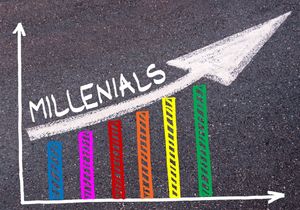83% of survey respondents prefer AI search over traditional Googling. LLMO agency, Optimized Artificial Intelligence, calls it the "new default," not a trend.
(PRUnderground) July 9th, 2025

A new survey reported by “Innovating with AI Magazine” confirms what forward-looking brands have already begun to suspect: 83% of users say they now prefer AI search tools like ChatGPT, Perplexity, and Claude over traditional Googling.(1) For Optimized Artificial Intelligence, a leading AI optimization agency founded by SEO veteran Damon Burton, this marks not a momentary shift but the dawn of a new default in digital behavior.
“This survey isn’t surprising. It’s validating,” said Burton, Founder of Optimized Artificial Intelligence and President of SEO National. “Consumers are clearly signaling that they no longer want to wade through pages of links. They want direct, synthesized answers, and they’re finding them through AI search platforms. That changes the entire playbook for SEO.”
The “Innovating with AI Magazine” report notes that ChatGPT now sees over 200 million weekly active users and that Google’s market share has dipped below 90% for the first time in nearly a decade. Tools like Microsoft’s Copilot, Claude by Anthropic, and Perplexity AI are redefining how information is retrieved and who gets cited.
Brands Can’t Rely on Legacy Search Alone
Optimized Artificial Intelligence has been at the forefront of large language model optimization (LLMO), a strategic evolution of SEO that prepares content not just for ranking on SERPs but for retrieval, citation, and trust in generative AI tools.
“The reality is, most businesses are still optimizing for a search engine that’s disappearing from user behavior,” said Burton. “Google isn’t dying, but it’s being re-prioritized. If your content isn’t LLM optimized by being structured, cited, and semantically relevant, you’re already losing opportunities.”
OAI’s proprietary approach to LLMO, also called generative engine optimization (GEO), includes:
- Entity-first schema structuring
- Semantic content clustering for LLM retrieval
- Platform-specific tuning for ChatGPT, Gemini, Claude, Copilot, Perplexity, and more
- Reputation signal optimization to increase brand inclusion in AI-generated summaries
Why This Matters for the Future of Discovery
The “Innovating with AI Magazine” report also highlights challenges: hallucinations, misinformation, and a lack of third-party visibility. But Burton argues this is precisely why strategy matters now more than ever.
“Hallucinations are a technical challenge, but they’re also a signal. LLMs choose what they cite based on structure, clarity, and trust. If your brand isn’t showing up in AI-generated responses, it’s not because AI search is broken. It’s because your content isn’t optimized for how these models think.”
Call to Action for Forward-Thinking Brands
As Google cannibalizes its own SERPs in favor of AI Overviews and third-party visibility continues to shrink, Burton urges brands to adapt and fast: “This is the end of traditional SEO as we knew it. But it’s the beginning of something better: precision-targeted, AI-friendly optimization that earns trust, not just traffic.”
To learn more about SEO for AI search engines and how to get found and cited across platforms like ChatGPT, Claude, Gemini, Perplexity, and Copilot, visit www.OptimizedArtificialIntelligence.com.
(1) https://innovatingwithai.com/is-ai-search-replacing-traditional-search/
About Optimized Artificial Intelligence
Optimized Artificial Intelligence offers tailored AI solutions designed to enhance business operations and drive growth. Their services include developing custom AI models, automating workflows, and providing data-driven insights to help businesses make informed decisions.
The post Optimized Artificial Intelligence Responds to Search Preferences Survey first appeared on
Original Press Release.





